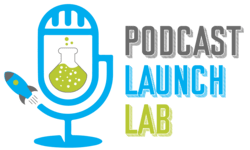Podcasting has exploded over the past decade, and it’s no longer just a medium for hobbyists or entertainers. Today, it’s one of the most powerful tools entrepreneurs and business owners can use to grow their influence, build authority, and generate income.
But here’s the reality: most podcasters never see a dollar from their show. They record episodes, bring on amazing guests, and share their work across social media… but the money never follows.
So, how do you actually monetize your podcast, especially if you’re not getting tens of thousands of downloads per episode? In this guide, we’ll break down how to transform your podcast into a revenue-generating machine, even with a small but engaged audience.
Busting the Biggest Myth About Podcast Monetization
Let’s address the biggest misconception right away: you do not need a massive audience to make money from your podcast.
While it’s true that major sponsors often look for shows with 10k+ downloads per episode, most podcasters will never hit that mark—and that’s okay. There are smarter, more direct ways to make your podcast profitable.
The key is to stop focusing only on your listeners and start leveraging your guests and relationships as the primary income source.
Turn Your Podcast Into a Sales Vehicle
Your podcast can be more than just content—it can be a strategic business development tool.
Think about this: Instead of chasing cold leads, what if you invited your ideal clients or referral partners to be guests on your show? You’re no longer a stranger trying to “pitch” someone. You’re a podcast host offering them a platform to tell their story.
Here’s what happens during that process:
- You build rapport.
- You establish authority in your niche.
- You create a meaningful connection without the awkward cold pitch.
By the end of the episode, you’ve already had a valuable conversation. The trust is there. The next step—whether it’s a sales call, referral, or collaboration—becomes a natural continuation rather than a forced sales attempt.
This is exactly what high-level business podcasters like Sebastian Rusk of The Podcast Launch Lab teach. It’s all about guest leverage—inviting the right people on your show and using the podcast as an entry point to business conversations.
Automate Your Workflow to Save Time
One of the top excuses people make for not starting a podcast is “I don’t have time.”
But guess what? Most of the podcasting process can be automated or outsourced.
- Use scheduling tools like Calendly to let guests book their own time slots.
- Create an automated pre-interview questionnaire to gather info upfront.
- Batch record several episodes in one day to stay ahead.
- Use editing tools or hire a podcast editor to handle post-production.
Once your system is in place, your podcast becomes a minimal-effort, high-return marketing engine.
Real-Life Example: Monetization Without Massive Downloads
Still skeptical that a podcast can generate real money without a huge audience?
Let’s talk about Kevin Spencer, host of Retail Checks and Balances. He started his show to spotlight retail business owners in his network and provide value to his audience. But the real value? The relationships built behind the mic.
Over 15 months, Kevin’s podcast helped him generate over $225,000 in business—just from the conversations and connections he made with his guests.
He didn’t chase sponsorships.
He didn’t have viral growth.
He used his podcast as a strategic networking and sales tool—and it paid off.
Podcasting Builds Your Communication Confidence
There’s another underrated benefit of podcasting: it helps you become a better communicator.
If public speaking or self-promotion has ever made you nervous, podcasting is a great way to practice in a low-pressure environment. As you record more episodes, you’ll notice:
- Your self-doubt starts to fade.
- Your articulation improves.
- Your confidence grows.
And that confidence spills over into everything—sales calls, presentations, videos, and networking events.
The Biggest Barrier: Just Getting Started
Let’s be honest. For many aspiring podcasters, the biggest hurdle is simply starting. It’s easy to get stuck in the cycle of:
- “I don’t know what equipment to use.”
- “I’m not sure anyone will listen.”
- “I’m not ready.”
But here’s the truth: there will never be a perfect time. You just have to start.
The first episode won’t be perfect. That’s okay. What matters is taking the first step. Most podcasters feel significantly more comfortable and confident by episode three.
Final Thoughts: If You Hate Money, Don’t Podcast
Podcasting is one of the most valuable tools available to business owners today—if used strategically.
Don’t just launch a podcast because it’s trendy. Launch one with intention. Use it to build real relationships, showcase your expertise, and open doors that traditional sales methods simply can’t.
Need help launching your podcast?
Schedule a Free Podcast Strategy Call TODAY!


Recent Comments